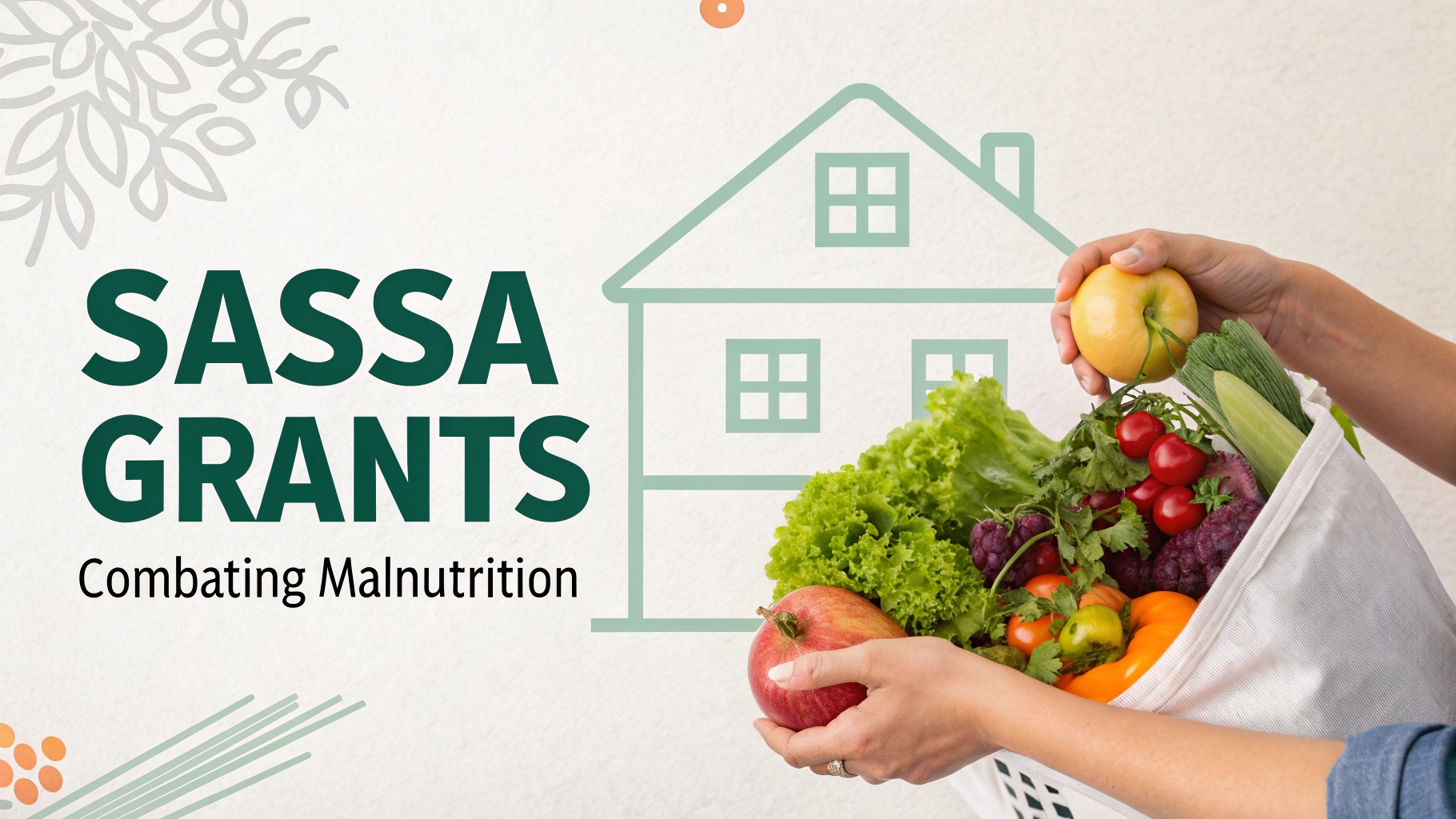Malnutrition remains a significant challenge in South Africa, affecting the health and development of vulnerable populations, particularly children. The South African Social Security Agency (SASSA) administers various social grants aimed at alleviating poverty and improving food security. This blog explores how SASSA grants contribute to reducing malnutrition, their impact on food security and health, and the challenges that persist in combating malnutrition.
Understanding SASSA Grants
SASSA offers several grants to support different segments of the population:
- Child Support Grant (CSG): Provides R530 per month to caregivers of children under 18 years old.
- Older Persons Grant (OPG): Offers R2,190 monthly to individuals aged 60 to 74, and R2,210 to those 75 and older.
- Disability Grant: Allocates R2,190 per month to eligible individuals with disabilities.
These grants aim to provide financial assistance to improve the living conditions of recipients, with a focus on enhancing food security and reducing hunger.
The Link Between Social Grants and Food Security
Social grants play a crucial role in enabling households to access food. The financial support from grants like the CSG and OPG allows families to purchase essential food items, thereby reducing hunger and improving dietary intake. Studies have shown that the OPG positively impacts dietary diversity, indicating that households receiving this grant can afford a more varied diet.
However, the impact of the CSG on dietary diversity is less clear. While it provides essential support, the grant amount may be insufficient to significantly enhance dietary variety, especially in larger households where resources are stretched.
Impact on Child Nutrition and Health
The CSG has been associated with improvements in children's nutritional status. Research indicates that children receiving the CSG have better growth metrics, such as increased Body Mass Index (BMI), suggesting a positive effect on their nutritional well-being.
Despite these benefits, challenges persist. Child stunting rates in South Africa have remained high, with little improvement over the years. This stagnation suggests that while social grants provide necessary support, they may not be sufficient alone to address the underlying causes of malnutrition.
Challenges in Combating Malnutrition Despite Social Grants
Several factors limit the effectiveness of social grants in eradicating malnutrition:
- Insufficient Grant Amounts: The current grant amounts may not adequately cover the rising costs of nutritious food, making it challenging for families to meet all their dietary needs.
- Misallocation of Funds: There are instances where grant money is not used specifically for nutritional purposes, which can diminish its impact on reducing malnutrition.
- Systemic Issues: Factors such as inadequate breastfeeding practices, poor sanitation, and limited access to healthcare services also contribute to persistent malnutrition, indicating that financial support alone is not enough.
Collaborative Efforts to Enhance Food Security
Addressing malnutrition requires a multifaceted approach:
- Government Initiatives: Enhancing the value of social grants and ensuring they keep pace with inflation can help improve their effectiveness.
- Community Programs: Local organizations can provide education on nutrition and proper childcare practices, empowering communities to make informed decisions.
- Integrated Policies: Combining social grants with other interventions, such as improving access to clean water, sanitation, and healthcare, can address the root causes of malnutrition more effectively.
Conclusion
SASSA grants are instrumental in supporting vulnerable communities and have a positive impact on reducing hunger and improving nutritional outcomes. However, to effectively combat malnutrition, it is essential to address the limitations of these grants and implement comprehensive strategies that tackle the broader determinants of health. Collaborative efforts between the government, non-governmental organizations, and communities are crucial to create sustainable solutions for malnutrition in South Africa.
For more insights into the role of SASSA grants in combating malnutrition, you may find the following video informative:
